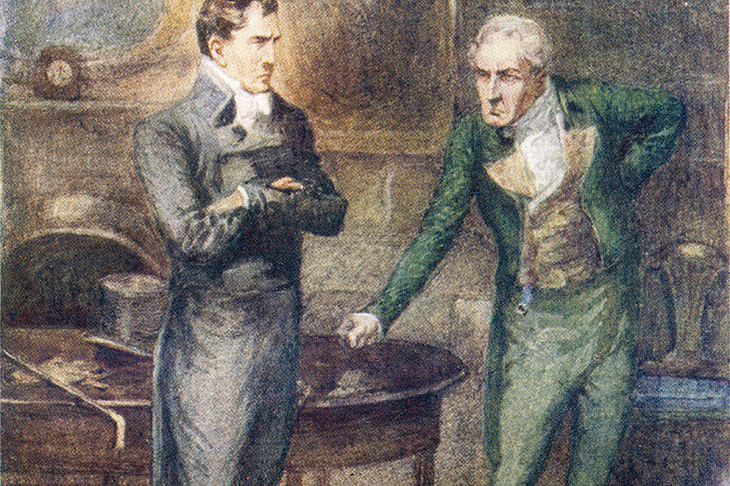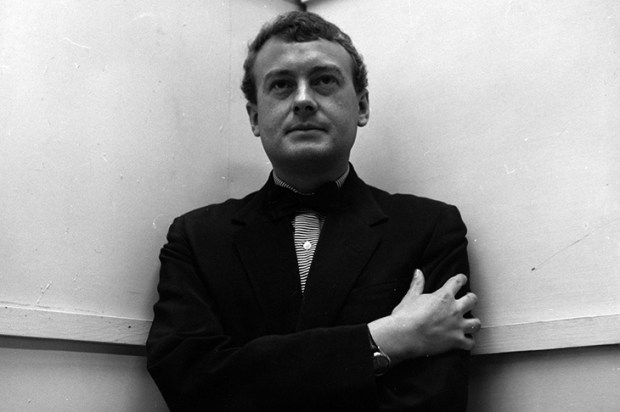Readers of Jane Austen gain a clear idea of the task facing the daughters of gentlemen. They need to secure a husband who can enable them to keep or even improve their social and economic status. But what about their opposite numbers? How did the younger sons of gentlemen face up to the challenges and responsibilities of adulthood?
Primogeniture meant that even those from a wealthy background often had to earn their living. While for girls marriage and career tended to be synonymous, for many of their brothers a profession came first, and then with luck a marriage would follow, since ‘a single man in possession of a good fortune must be in want of a wife’. How young single men went about achieving such good fortune is the question that Rory Muir sets out to answer. At one point he even reverses the gender of the Bennet sisters in order to speculate about the career path each might have followed — poor Mary would have become an attorney, and ‘ripened fully into pomposity and dullness with years and success’.
This is a book about the professions on offer at the end of the 18th century and the beginning of the 19th, not just to younger sons but also to the eldest offspring of gentlemen down on their luck, as well as to the sons of successful members of the middle classes wanting to improve their social standing. There was a ‘tidal zone where lower reaches of the gentry… overlapped and merged with the upper reaches of the bourgeoisie’.
The principal options can be told off on one’s fingers: the church, medicine, the law, banking and commerce, civil office, the army, the navy, service in India. Nowadays, we face ‘a greater array… from air-traffic controller to zoologist’, and women are eligible too (apart from those cross-dressing Bennet sisters, there is only one mention of women participating in the recognised professions, those acting as ‘supernumerary clerks’ in certain government offices).
No book with the words ‘Jane Austen’ in the subtitle can afford to be dull, and though Muir gives us plenty of detail — numbers recruited at different periods, premiums paid and salaries earned — he illuminates the hard facts with vignettes of actual lives lived. Sometimes these are the merest glimpses, figures flickering into life for a moment before vanishing into the darkness of the past. A bored infantry officer by the name of William Swabey watches fish from a bridge or throws stones at pigs: ‘I am ashamed of it, but have nothing else to do.’
Elsewhere, however, more sustained treatment is possible. Muir plots the curious career trajectory of Jane’s own brother Francis Austen, who saw distinguished action at sea, then cooled his heels on half-pay for 30 years, before being abruptly promoted to admiral. Meanwhile, John Scott’s 18-year-old beloved climbed down a ladder from her bedroom window and the romantic pair eloped to Scotland. In due course John became a barrister, but, as with so many of the young men in all the professions, struggled to make a living. One year he promised to treat himself to all his income for 11 months, leaving only the final month’s money for his wife (‘What a stingy dog I must have been!’). As it happened, his only earnings arrived in December. Still, through talent and hard work (not to mention, as in so many cases, useful connections), he ended up Earl of Eldon, Lord High Chancellor of Great Britain.
But only a tiny minority achieved such success. Career structures tended to be arbitrary and ramshackle. In many professions, entrance requirements were a lottery. Examinations and interviews might be probing or superficial, according to the whim or temperament of the employer. In most cases, what really mattered was money up front, whether to buy a position or to support oneself for many years until — if ever — one’s labours began to turn a profit. Many clerics worked as underpaid curates for the whole of their working lives, while military expenses were so high that most army officers spent more than they ever earned.
Boredom and frustration were as common then as now, and the transition from a cosy home to professional life was a wrench for many. Several testimonies convey a sense of the unreality of the world of work. For one young midshipman, ‘all seemed strange; different language and expressions of tongue, that I thought myself always asleep or in a dream, and never properly awake’. As Muir says at the conclusion of this fascinating study: ‘Whether work should be so important in our lives… is another matter.’
Got something to add? Join the discussion and comment below.
Get 10 issues for just $10
Subscribe to The Spectator Australia today for the next 10 magazine issues, plus full online access, for just $10.
You might disagree with half of it, but you’ll enjoy reading all of it. Try your first month for free, then just $2 a week for the remainder of your first year.














Comments
Don't miss out
Join the conversation with other Spectator Australia readers. Subscribe to leave a comment.
SUBSCRIBEAlready a subscriber? Log in